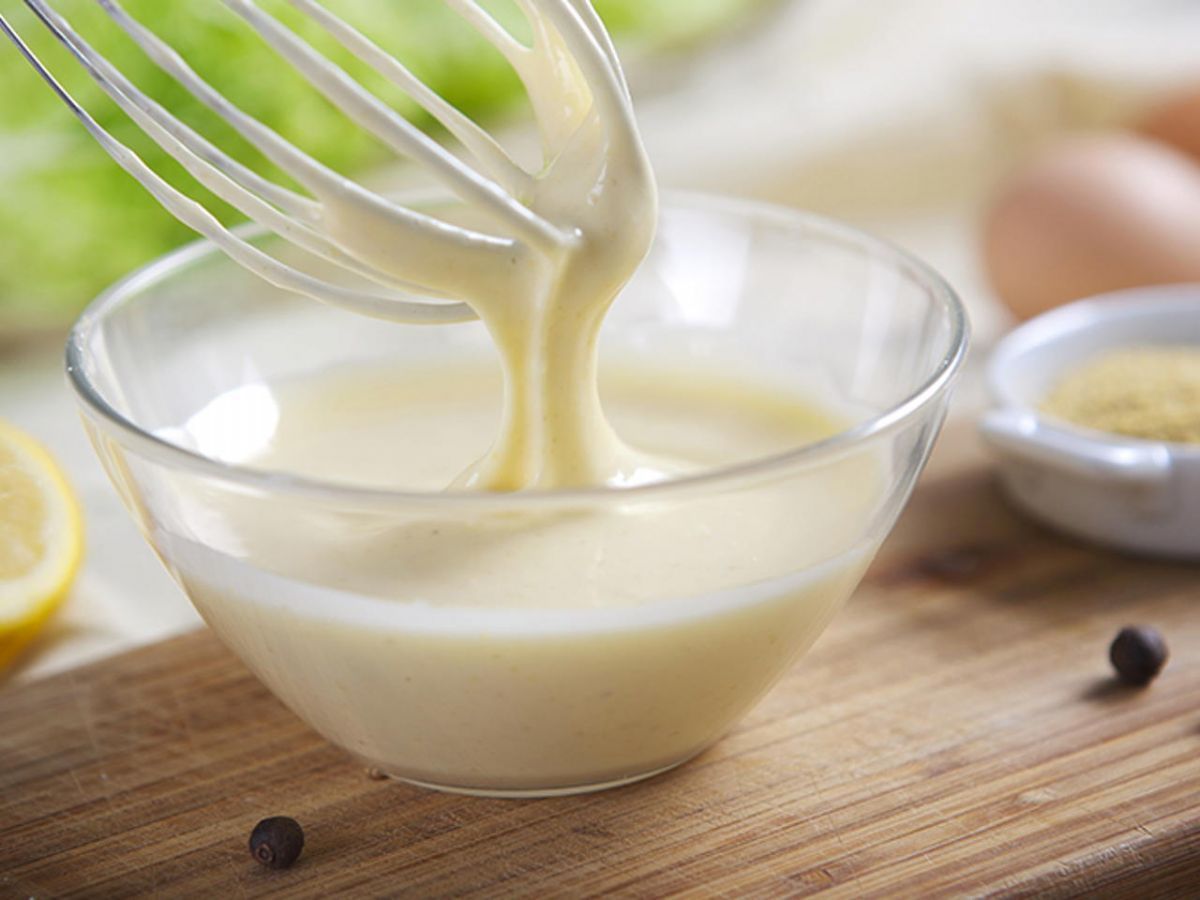HOW TO PRODUCE MAYONNAISE?

According to the story, mayonnaise became famous in the 1700s at the port of Mahon after a war between France and Spain. Nevertheless, it is still a matter of debate whether the origin of the first recipe is Spanish or French.
This sauce, which became widespread in Germany and England in the early 19th century, is first served with meat products. Towards the end of the century, it was also popular in America and began to accompany all kinds of food, from salads to potatoes. Interestingly, mayonnaise can be made with three raw materials that are always available in the kitchen. These raw materials are lemon, egg, and oil.
Of course, if you mix these three raw materials in a bowl, you get an untangled mixture. Because oil and water phases do not mix. So what's the secret? In fact, under the microscope, mayonnaise is an emulsion in which small oil droplets can be seen separately. It is very important that the oil droplets are small. Because oil droplets in the water, which form the continuous phase, should not come together to be hung in water; that is, they should be small.
Egg yolk, which holds the water and oil phases of mayonnaise together and holds both phases, is the most important input that makes this sauce possible thanks to its content of protein and phospholipids.

When you add oil slowly and whiskingly to the egg yolk at room temperature, you drop the fat droplets onto the egg, which acts as an emulsifier and hangs. The continuous mixing and the slow addition of oil prevent the fat molecules from coming together and keep the droplets small. So you increase the consistency.
If you are progressing through the mixing and oil addition stages, your homemade mayonnaise, which looks very homogeneous, is ready. This is a mayonnaise recipe that should be consumed within a week. At the end of a week, the droplets in motion come together so that phase separation can be seen.
In industrial production, the shelf life of mayonnaise is, of course, longer. Because there are specially developed emulsifiers and thickeners to prevent phase separation. In addition to that, when the oil is reduced, which gives the sauce consistency and creates a feeling of fullness in the mouth, and even if the eggs are removed, a consistent mayonnaise can be obtained. So light or vegan mayonnaise is as successful as standard mayonnaise.
For more information, customized solutions, and sample requests, please contact us.
